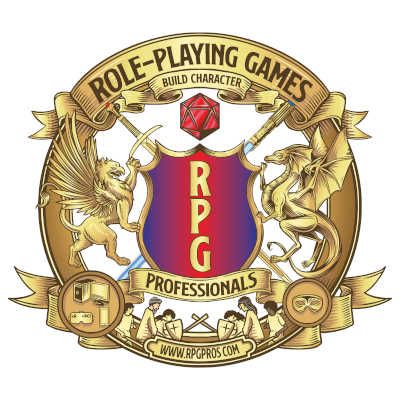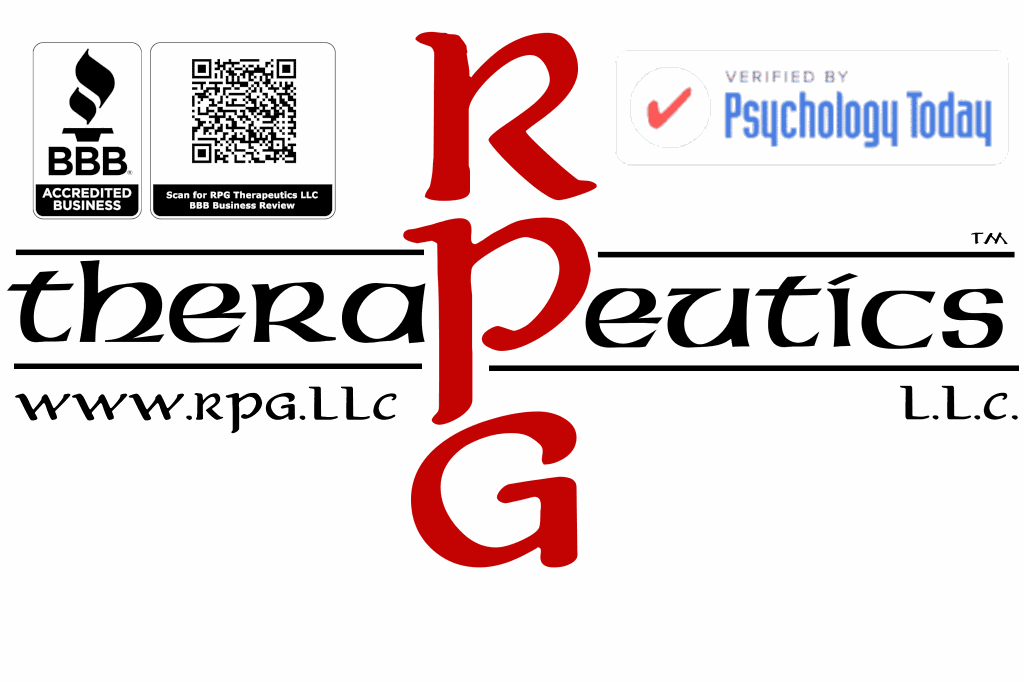Our Programs Build Character(s)
Our highly effective programs build character(s), mindfulness, self-Regulation, improved communication skills, cooperative problem solving, empathy, frustration tolerance, perseverance, competence & meaningful confidence, resilience, and real grit
By literally creating player characters and going through our distinctive evidence-based programs, backed by more than 45 years of direct experience, our motto has become "Role-Playing Games Build Character".

First, we have been studying the effects of role-playing games, and using them to achieve targeted goals longer than anyone else.
Our founder began participating and organizing RPGs in community settings in 1977, experimenting with optimizing RPG experiences since 1979, researching the potential effects and uses of RPGs since 1983, using them inside schools for education and around educational settings and goals since 1985, working with high-risk and incarcerated populations since 1989, and broader mental health and therapeutic applications since 2004.
See the papers linked in this article and in the references section for more in-depth explanations that do more justice to the extensive results we have found over the decades. A short version of why our programs are so effective is:
With proper iterative assessment, planning, implementation, and evaluation, using our effective programs plans, observers will note significant improvements in the participants bio-cognitive-psycho-socioemotional functioning and quality of life within a few weeks during the activities using our evidence-based Role-playing Game formulae, and with each passing session further generalization of these benefits into their daily lives.
Through our use of intrinsic motivation, immersion, flow state and other experiences, they will increase in their self-awareness (mindfulness in a meaningful not "woo woo" way), self-regulation, take on challenges that test and build their frustration tolerance, learn to "stick to it" growing perseverance, through development of real competence leading to meaningful confidence (not fragile false confidence), become increasingly resilient, and develop true "grit". Through our simulated Controlled Simulated Social Group Programs , participants learn to work strenuously toward challenges, maintaining effort and interest over prolonged periods of time (even years), despite repeated failures, adversities, and plateaus in progress.
Research and our more than 45 years of evidence in practice shows that compared to other competing program providers, those programs that incorporate RPG Therapeutics LLC's distinctive approach to enhancing the efficacy of RPG-based programs, deliver more quickly and sustainably better positive experiences with cooperative ongoing engagement, better success rates at completing tasks cooperatively, improved efforts at communication with others, and continuing the benefits long after completion of our programs.
We try to "work ourselves out of a job" by focusing on what matters most to the client's future.
While other RPG Therapy related service providers state publicly that their own metric of success is their ongoing retention rate of their clients over years, our goal is to get the client to self-efficacy and independence in a meaningful and sustainable way, effectively working ourselves out of the job of taking care of that individual client.
Our goals include getting clients to as much independent, self-sufficient, self-efficacy as possible, sustainably, in the shortest amount of time. We consider it a failure on our part if our clients must remain dependent on us indefinitely. We consider it a "win" when our clients finish our programs quickly over a set duration of time, meeting all relevant criteria and goals, and years later we find they are still progressing and benefiting on their own, but thank us for being the key catalyst that enabled them to do so independently.
We are always there as a resources years later to help as needed, but we encourage growth of self-sufficient efficacy, rather than dependency on us.
Importantly significant toward autonomy and life-long benefits, we have found that through our distinctive transition assistance programs, after initial experiences with our programs, participants are much more likely to seek out opportunities for further engagement in these types of activities.
This is a key part of the efficacy of our programs, through effective assessment tools and techniques, we tap into their intrinsic self-motivation, an approach which improves the likelihood that they will continue to engage in the more challenging, as well as social, tasks due to the enjoyment aspects of the Role-playing Game experience, despite the extra effort that some participants experience when trying to work in a cooperatively social environment.
This approach reinforces ongoing lifelong benefits that continue to grow and improve long after our treatment intervention sessions have completed.

Some key aspects of our programs include:
- Baseline assessments and periodic evaluations showing measurable results
- Pre-and-post session processing discussions with every session.
- Generalized applicable life skills development of activities and tasks between sessions.
- Multidisciplinary methodologies integration to significantly enhance the effects and long-term benefits of these modalities.
- Incrementally increasing challenges to build actual competence and meaningfully resilient confidence over time.
- Improve frustration tolerance, problem solving, realistic mindfulness, resilience, and development of true "grit".
- Encourage opportunities for in-depth perspective taking, "walking in the shoes of others".
- Creative cooperative problem solving with groups.
- Generalization of social skills into daily living.
- Work through reducing overly rigid thought patterns and promote more adaptive and flexible thinking.
- Increased self-awareness and empathy others.
- Customized transitional programs (as needed) for ongoing community connections and lifelong benefits.
- Often nearly immediate noticeable decreases in maladaptive and inappropriate social interaction behaviors.
- Increases in appropriate social initiations.
- Progressive increase in hand raising / turn-taking, respect and consideration of others.
- Reduction of inappropriate vocalizations or other "tics".
- Positive behavior changes maintained over time, will periodic followups showing ongoing efficacy and growth many years later.
- Reduction in anxiety and depression, including social phobias and some of the symptoms of PTSD.
- We provide highly controlled environments, where can adjust lighting, tactile exposures, sounds, temperature, and more, including with our wheelchair accessible mobile facilities to reduce irritants and distractions for those with a variety of sensory differences or challenges.
References
2004. W.A. Hawkes-Robinson. An Overview of the History and Potential Therapeutic Value of Role-playing Gaming https://www.researchgate.net/publication/237074754_An_Overview_of_the_History_and_Potential_Therapeutic_Value_of_Role-playing_Gaming
2008. W.A. Hawkes-Robinson. Role-playing Games Used as Educational and Therapeutic Tools for Youth and Adults. https://www.academia.edu/3668971/Role_playing_Games_Used_as_Educational_and_Therapeutic_Tool_for_Youth_and_Adults
2019. W.A. Hawkes-Robinson. Role-Playing Game Ability Model According to the Hawkes-Robinson Role-Playing Game Professional Role-Playing Game Model. DOI: 10.13140/RG.2.2.32598.83521
2021. Lucy R. Zheng, Catherine M. Oberle, W. A. Hawkes-Robinson, Stéphane Daniau. Serious Games as a Complementary Tool for Social Skill Development in Young People: A Systematic Review of the Literature https://journals.sagepub.com/doi/10.1177/10468781211031283?icid=int.sj-full-text.citing-articles.317
What is distinctive about RPG Therapeutics's approach to using RPGs?
Our Highly Effective Programs Build Character(s), Mindfulness, Self-Regulation, Improved Communication Skills, Cooperative Problem Solving, Empathy, Frustration Tolerance, Perseverance, Competence & Meaningful Confidence, Resilience, and Real Grit